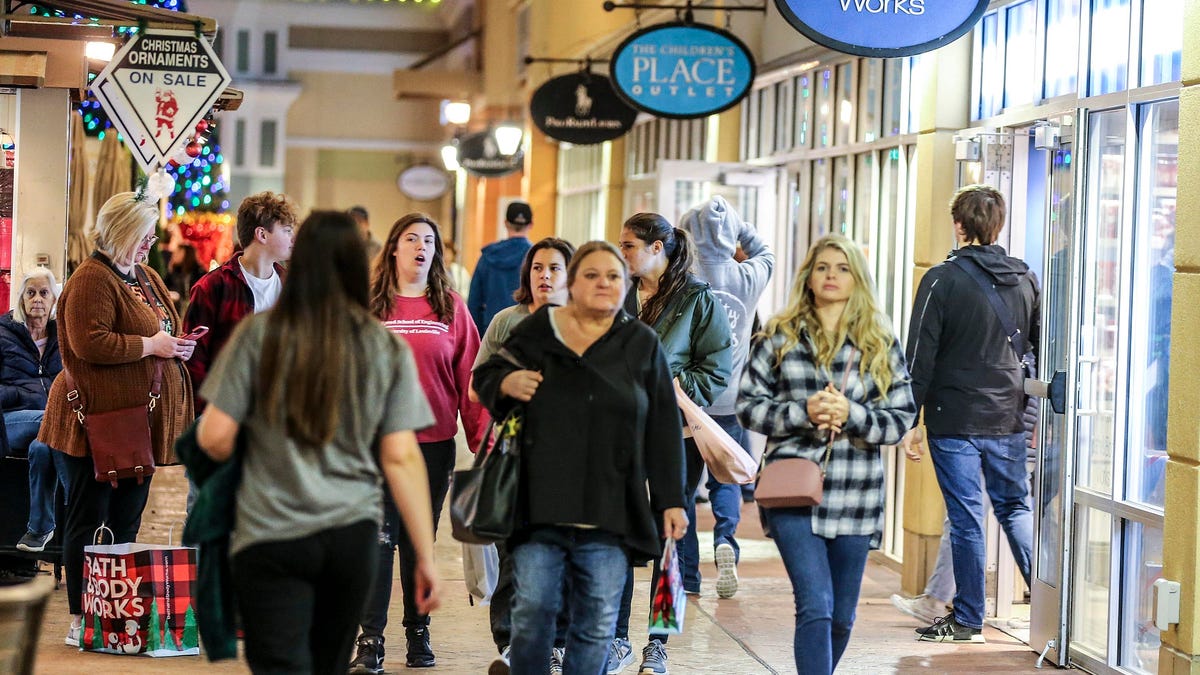

Cheaper food and gas provide some relief from US inflation
U.S. consumer inflation eased in March, with less expensive gas and food providing some relief to households that have struggled under the weight of surging prices. (April 12) (AP Video: Cody Jackson)
AP
Retail sales slowed sharply in March, underscoring that Americans’ wherewithal to spend is waning after a weather-induced buying spree early in the year.
Sales fell 1%, more than the 0.4% decline economists expected. Excluding volatile autos and gasoline, sales declined 0.3%.
A core measure of retail sales — that excludes autos, gas, building materials and food supplies — dipped 0.3%.
Business declined across a broad range of categories, with sales declining 1.6% in autos, 3% at generally merchandise outlets, 1.2% at furniture stores, 2.1% at electronics and appliance stores and 1.7% at clothing shops.
Sales rose 1.9% online and 0.1% at restaurants and bars.
Consumer spending was solid in January and February but economists traced the performance to unusually warm weather that boosted retail and restaurant revenue along with travel.
Retail sales slowed in late 2022 and many economists expect that trend to resume as inflation, rapidly rising interest rates and stricter bank lending standards after the Silicon Valley Bank crisis squeeze consumers. Those hurdles are expected to more than offset sturdy but softening job and wage growth.
“The economic environment will become less favorable for consumers as income gains slow, excess savings are run dry, prices stay high, and credit flows less freely to households,” economist Oren Klachkin of Oxford Economics wrote in a note to clients.
Employers added 236,000 jobs in March, down from 472,000 in January and average annual wage growth slowed from 4.4% to a still healthy 4.2% during that period. Inflation, meanwhile, has eased from 9.1% last June to 5% in March but that’s still well above the Fed’s 2% target.
Consumer spending likely grew strongly in the first quarter but it’s then projected to weaken. For the entire year, economists expect outlays to rise 1.4%, about half of last year’s pace, according to a survey by Wolters Kluwer Blue Chip Economic Indicators. Consumption makes up about 70% of economic activity.
Most economists expect a recession to begin by the second half of the year.
